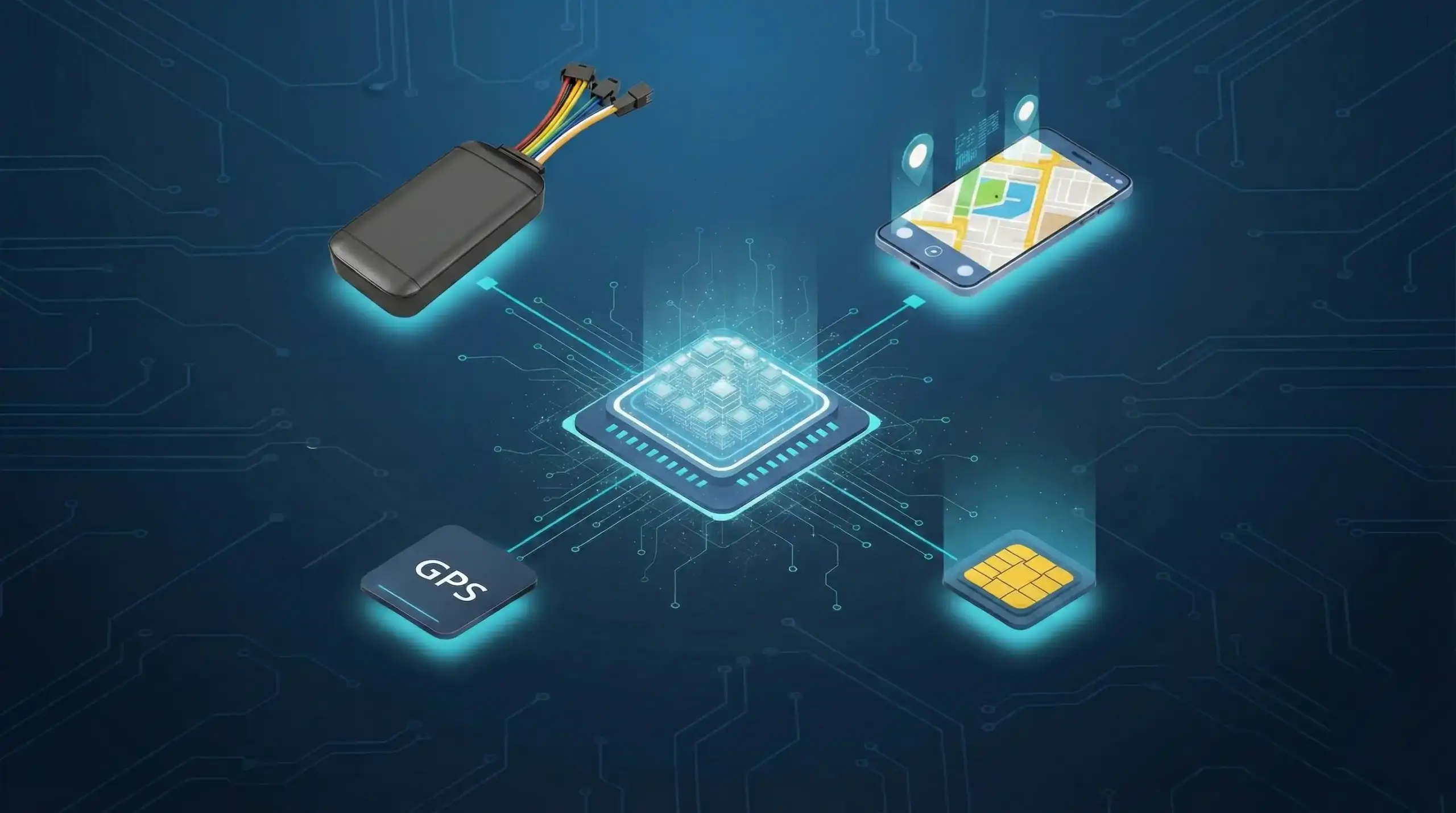Intro to Vehicle Safety and GPS Technology
Vehicle safety has constantly been a crucial concern for manufacturers, صانعو السياسة, and customers alike. Traditional precaution such as seat belts, air bags, and anti-lock stopping systems (القيمة المطلقة) have significantly decreased the variety of deaths and injuries when driving. These developments have set a high standard for vehicle safety, ensuring that residents are better protected throughout accidents and unfavorable driving problems. Our general practitioners tracker manufacturing facility continuously works to improve these safety features.
لكن, as technology proceeds to advance, so too do the techniques for ensuring vehicle safety. أدخل تقنية GPS, which has evolved much past its very early use as a simple navigating device. اليوم, the Protrack GPS tracker and comparable systems play a crucial role in improving vehicle safety. Initially designed to provide drivers with instructions, GPS systems currently incorporate with various vehicle functions to offer extensive safety solutions. This consists of specific solutions like a motorrad general practitioners tracker.
نظام Protrack365 GPS, للظروف, exceeds traditional navigating to consist of features such as real-time monitoring, سياج جغرافي, وتحسين المسار. These performances are especially beneficial for fleet management, enabling companies to monitor vehicle locations, عادات السائق, and ecological problems from another location. Such abilities not just improve functional effectiveness but also add to overall vehicle safety by enabling positive upkeep and immediate reaction to emergency situations. A durable general practitioners tracker deliver system is also available for marine applications.
As we appearance to the future, the role of GPS technology in vehicle safety is expected to expand also further. Approaching developments may consist of more advanced integration with self-governing driving systems, real-time risk discovery, and anticipating analytics to prevent accidents before they occur. The development of GPS technology like the Protrack GPS tracker represents a change towards smarter, more connected vehicles that focus on safety every which way. We continually innovate at our general practitioners tracker manufacturing facility to satisfy these future demands.
This article will dig deeper into these developments, exploring how the future generation of GPS systems will form the future of vehicle safety. From improved fleet management solutions to improved chauffeur assistance features, the opportunities are vast and promising.
ميزات السلامة المبتكرة المستندة إلى GPS
As technical developments proceed to improve the landscape of vehicle safety, GPS systems have become critical devices. حلول GPS الحديثة, مثل Tracker Protrack GPS ونظام Protrack365 GPS, are equipped with a myriad of features that significantly improve driving safety and effectiveness. Among one of the most noteworthy developments is real-time traffic updates. This feature allows drivers to receive prompt information about roadway problems, blockage, والمخاطر المحتملة. By providing alternative routes and approximated travel times, these updates help in avoiding traffic jams and decreasing the possibility of accidents. Our general practitioners tracker manufacturing facility ensures these features are durable and dependable.
Another critical development is the integration of collision evasion systems. These systems take advantage of GPS information to monitor the vehicle’s environments and anticipate potential accidents. By evaluating the speed and trajectory of nearby vehicles, they can issue cautions or also take automated restorative activities, such as stopping or guiding modifications. This positive approach to safety contributes in preventing accidents and ensuring a smoother driving experience. This can also be integrated into a motorrad general practitioners tracker for improved two-wheeler safety.
Automated emergency situation reaction is yet another innovative feature allowed by advanced GPS systems. In case of a mishap, the Protrack GPS Tracker can immediately inform emergency situation solutions with precise place information. This fast reaction capability is crucial in decreasing the moment it considers help to show up, possibly conserving lives and mitigating the seriousness of injuries. For the marine industry, a specific general practitioners tracker deliver system provides comparable important emergency situation notifies.
These GPS-based safety features are not simply academic ideas but are proactively being executed in present vehicle models. للظروف, lots of modern cars come equipped with integrated GPS systems that offer these safety improvements as standard features. Fleet management companies also take advantage of these technologies, استخدام أنظمة مثل Protrack365 لمراقبة سياراتهم في الوقت الفعلي, ensuring the safety of their drivers and the effectiveness of their procedures. Our general practitioners tracker manufacturing facility goes to the forefront of these applications.
Integrating these innovative GPS technologies into vehicles stands for a considerable jump ahead in automobile safety. من خلال توفير معلومات في الوقت الفعلي, preventing accidents, and enabling quick emergency situation responses, GPS systems are production roadways safer and driving more efficient for everybody.
The Role of GPS in Self-governing Vehicles
GPS technology is fundamental to the development and procedure of self-governing vehicles, facilitating precise vehicle placing, تخطيط المسار, and challenge discovery. The integration of systems like the Protrack GPS tracker has allowed considerable developments in these locations, improving the overall abilities of self-governing driving technologies. By providing real-time information on vehicle place and movement, GPS systems permit self-governing vehicles to browse complex atmospheres with a high level of precision. Our general practitioners tracker manufacturing facility is happy to add to these developments.
Among the primary functions of GPS in self-governing vehicles is to determine the exact position of the vehicle within a provided space. This is crucial for jobs such as lane-keeping, تحول, and quiting at precise locations. نظام Protrack365 GPS, على سبيل المثال, uses a network of satellites to deliver continuous, accurate placing information, which the vehicle’s onboard computer system uses to create real-time choices. This accuracy is also crucial for a motorrad general practitioners tracker in busy metropolitan atmospheres.
Path planning is one more critical
موقع
where GPS technology plays an important role. Self-governing vehicles depend on GPS information to determine one of the most efficient routes, considering factors such as traffic problems, إغلاق الطرق, and various other challenges. This not just assists in enhancing travel time but also improves fuel effectiveness and decreases the ecological impact. Fleet management systems equipped with advanced GPS performances can manage several self-governing vehicles concurrently, ensuring a coordinated and efficient procedure. A dedicated general practitioners tracker deliver system ensures comparable effectiveness for sea-based self-governing procedures.
لكن, present GPS technology is not without its challenges. Indicate disturbance, limited precision in metropolitan canyons, and susceptability to spoofing and jamming are some of the problems that need to be dealt with. Future developments, such as the integration of alternative placing systems and advanced sensing unit combination methods, are being checked out to reduce these restrictions. Companies like Waymo and Tesla go to the forefront of this development, continuously testing and fine-tuning their self-governing vehicle technologies to overcome these challenges. The partnership with our general practitioners tracker manufacturing facility rates up these developments.
Integrating durable GPS systems into self-governing vehicles is essential for their safe and efficient procedure. مع استمرار تطور التكنولوجيا, the future of vehicle safety with GPS systems appearances promising, leading the way for more dependable and advanced self-governing driving solutions, consisting of advanced motorrad general practitioners tracker abilities.
Future Trends and Forecasts in GPS-Enhanced Vehicle Safety
As we appearance towards the future of vehicle safety, developments in GPS technology such as the Protrack GPS Tracker and the Protrack365 GPS system are positioned to play a critical role. Among one of the most anticipated developments is the improvement in precision through augmented GPS. By leveraging more advanced satellite networks and ground-based enhancement systems, future GPS trackers will offer accuracy to a couple of centimeters, significantly improving vehicle safety and fleet management. Our general practitioners tracker manufacturing facility is proactively researching these next-gen solutions.
Another critical pattern is the integration of GPS systems with arising technologies like 5G and the Internet of Points (إنترنت الأشياء). The ultra-low latency and high bandwidth of 5G will enable real-time interaction in between vehicles and facilities, prominent to more receptive and dependable precaution. IoT will further improve this by connecting various sensing units and devices within the vehicle, providing an extensive safety community that proactively handles dangers. This consists of developments in the motorrad general practitioners tracker.
بالإضافة إلى ذلك, the potential for fully self-governing driving is ending up being more concrete with each passing year. Advanced GPS systems will be crucial in guiding self-governing vehicles, ensuring they browse securely and efficiently through complex atmospheres. لكن, the shift to fully self-governing vehicles will require considerable changes in social standards and regulative structures. Personal privacy concerns will need to be dealt with, particularly with the enhanced information collection and sharing that these technologies will involve. Durable facilities will also be essential to support these developments, requiring considerable financial investments in wise streets and interaction networks. This also puts on the advanced needs of a general practitioners tracker deliver system.
Industry experts anticipate that we could begin seeing extensive fostering of these technologies within the next years. The effect on driving practices and roadway safety is expected to be extensive, with less accidents and more efficient traffic management. As these technologies develop, the role of GPS in vehicle safety will proceed to expand, providing unmatched degrees of protection and effectiveness for both individual drivers and fleet supervisors. The trip towards this future is promising, heralding a brand-new era of safety and development in the automobile industry, sustained by a cutting edge general practitioners tracker manufacturing facility.









